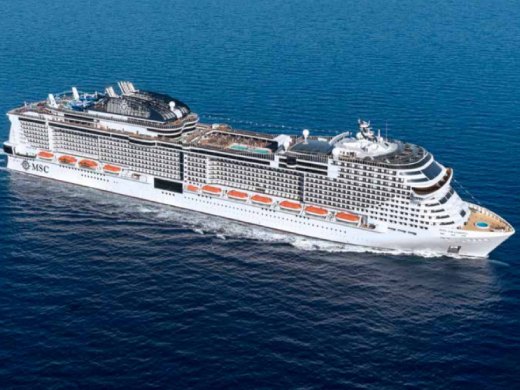Cruise lines have long led the travel industry in embracing innovative technology fast-track check-in, facial recognition, mobile boarding, and app-controlled cabins are now standard. Yet the COVID-19 pandemic added an urgent impetus to rethink how these systems can be leveraged to bolster health protocols. Experts predict a future where AI-driven solutions like germ-zapping robots, touchless boarding, biometric screening, voice-activated assistants, and virtual queuing become integral to safe, socially responsible cruising.
Cruising is, above all, a social experience. As Luis de Carvalho, CEO of Bermello Ajamil & Partners Europe, notes, social distancing may need to be carefully managed and phased out eventually to maintain the essence of cruise travel. That said, technology offers a path to preserve both safety and sociability at sea.
Tech Before Boarding: Touchless and Biometric Ports
Cruise lines are piloting airport-style, contact-free check-ins, scan your passport, take a selfie, and your boarding pass appears in your app. At embarkation you may simply wave your phone under a scanner and proceed directly on board.
Expect to see thermal cameras in terminals, screening for fever among passengers and crew. Portsmouth International Port in the U.K. already uses this technology, while Carnival Corp partners with Infrared Cameras Inc. to deploy facial recognition and temperature checks before boarding begins.
Beyond imaging, air-purification systems, UV lighting, and terminal disinfection tunnels can further reduce pathogen risk though thermal scans mostly serve a PR purpose, as many carriers are asymptomatic.
Onboard: Touchless Interactions Everywhere
Once aboard, expect deeper integration of contact-free technology. Smartphone apps like Carnival’s HUB, Royal Caribbean’s Royal app, Viking’s Voyager, and MSC’s MSC for Me allow guests to open cabin doors, order drinks, reserve shows, pay bills, control in-room lights and temperature, and access digital menus reducing shared surface touchpoints.
Shared kiosks for booking excursions or viewing photos may be phased out in favor of fully app-based systems. Paper menus, newsletters, and ornate invitation cards could become a thing of the past as cruise lines embrace paperless processes to minimize surface transmission.
Tech-enabled virtual queuing will help limit crowding in high-traffic zones like buffets, spas, pools, and bars. Geo-location wristbands already onboard MSC’s Bellissima and Grandiosa let guests locate friends and family via app, cutting down the need for gathering at fixed meeting points.
UV-Powered Robots: Germ-Zapping Revolution
One of the most promising innovations is germ-zapping robots using UV-C light. Companies like Xenex have adapted LightStrike, robots resembling R2-D2, to rapidly disinfect public spaces and cabins using intense UV light.
Last Minute Cruise Deals
Don’t wait! Book your last-minute cruise today and save big. Limited time offers great destinations. Secure your spot now before it's too late!
A spokesperson from Xenex shared that tests from Texas Biomedical Research Institute showed these robots could kill the virus behind COVID-19 in just two minutes. Built on prior protocols used to curb norovirus outbreaks, these robots can economically scale disinfection disrupting reliance on manual cleaning, which is labor-intensive and less consistent.
Rapid bursts of UV-C light penetrate viruses and bacteria without leaving chemical residues a critical advantage in the densely shared environment of a cruise ship.
AI, Chatbots and Voice Assistants: The Cruise Concierge of Tomorrow
Voice-activated assistants are already making waves: MSC’s “Zoe,” an Alexa-like AI speaker in cabin staterooms, can answer questions about dining times, show schedules, and amenity usage. Guests can even use it to control cabin lights or TV eliminating the need to touch light switches or remotes.
As AI learns over time, it expands its functionality and convenience. Chatbots and virtual assistants can field questions 24/7, handle bookings, and upscale the guest experience while human crew focus on higher-order service.
That said, technology isn’t poised to run cruise ships entirely. Experts caution it will augment, not replace, the personal attention that guests value from the crew. Human interaction warmth, attentiveness, and hospitality—remains core to the cruising experience.
Balancing Automation and Personal Touch
Fear of over-automation is real. Royal Caribbean found in 2014 that tablets for wait staff reduced face-to-face interaction and hurt guest satisfaction.
De Carvalho underscores this point: cruise travel thrives on human connection. Remove it, and cruising risks becoming mere transport rather than a memorable vacation. For tech to serve the future of cruising, it has to ensure human warmth not erode it.
Conclusion: Tech-Passive, People-Centric
The pandemic accelerated what was already underway: integrating AI and robotics in cruise operations. Germ-zapping robots, biometric portals, touchless apps, AI concierges, and virtual queues all contribute to a cruise experience that is accurate, efficient, and health-focused without sacrificing the sociability and charm that define cruising.
As cruise ships restart operations, these technologies will become essential — giving passengers confidence in safety, and still offering the joy of human connection that keeps them returning. The trick lies in balancing automation with personal service so the future of cruising is both smart and soulful.








